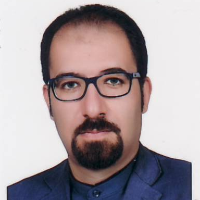Identifying the Perceived Consequences of Tourism by the Host Community (Case Study: Urban Tourism in Isfahan in the 90s)
The attitude of the host community towards the development of tourism is a subject that has recently received attention. The host community consists of a set of official agents, such as officials and agents of the tourism field, and informal agents, such as the residents of the tourism area. Residents of the tourism area in cities are citizens who are affected by urban events. Therefore, they will interact with the tourists of their city and evaluate the common tourism process in the city. In the present research, it has been tried to describe and analyze the citizens' understanding of the consequences of the presence of tourists for the urban space of Isfahan. The data of this study is a combination of two research projects that were conducted in 2014 and 2016. Citizens aged 15 to 65 in the fifteen districts of Isfahan city were the studied community in these two studies. And the method of data collection in both researches is survey. The results of the research indicate that the citizens of Isfahan consider the consequences of tourism for the urban space of Isfahan, including ten main themes in two dimensions: positive consequences and negative consequences. These themes include "creating employment, improving the quality of life of citizens, increasing cultural interactions, increasing services and facilities in the city and increasing security and reducing crime" in the dimension of positive consequences and "increasing traffic in the city, increasing prices and costs of living, limiting visits Among the tourist attractions for citizens, restrictions on the use of urban facilities and services and the increase in environmental pollution in tourist places are negative consequences. Citizens' evaluation of these consequences shows that positive consequences prevail over negative consequence.
-
The Place of Social Themes in Urban Health Studies
*, Hamed Sayar Khalj
Journal of Urban Studies on Space and Place, -
Urban Quality of Life in Isfahan: Priorities and Constructive Themes
, Mahvash Khademolfogharae *, Zahra Naji Isfahani,
Journal of Applied Sociology the University of Isfahan, -
Introducing the Business-Community Matching Model (CBM) for Rural Employment Decision-Making in Local Communities (Case Study: Kahrouyeh Village in Shahreza Township)
Mina Kashani Hamedani, Parastou Darouei *, Mohammad Amin Hosseinikia,
Journal of Urban Economics,



